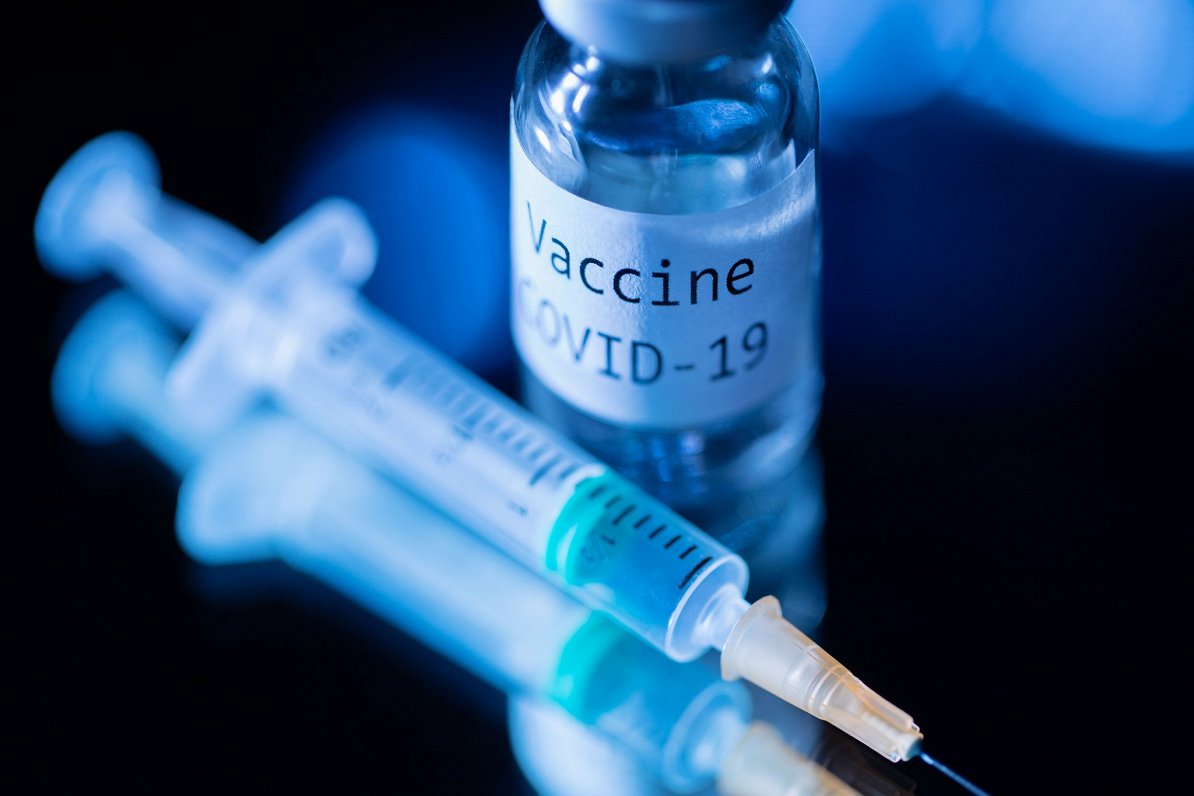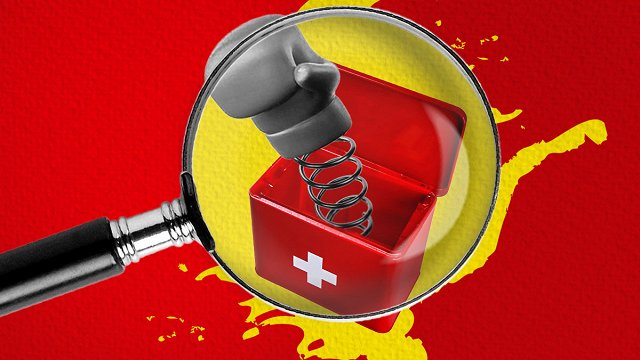Vaccination in Latvia will be voluntary. However, one airline has announced they will only service vaccinated people and in the UK it has been said that people who refuse a vaccine for COVID-19 could find normal life curtailed as restaurants, bars, cinemas and sports venues could block entry to them. Could it be so that certain groups of people in Latvia will have the vaccination as a mandatory requirement, similarly to tuberculosis vaccine proof for those who want a residence permit?
Dace Zavadska: Vaccination at national level is not a mandatory requirement, neither for children nor adults. However, we will have to look at how we will live with this virus in the future. Let's say if you're planning a complicated operation in a hospital, such as a heart transplant, it would be complete nonsense to give a new heart to an unvaccinated person if he dies from COVID-19 after that.
On the other hand, the airlines, I think, can [introduce such requirements]. Flights are not a product of first necessity, if you don't want to get vaccinated – don't fly. As regards the service sector, t restaurants … Don't think there will be [a requirement to vaccinate]. In a democracy, I personally don't feel it is possible.
Jurijs Perevoščikovs: I don't see anything new in such limitations. For example, since unmemorable times, there has been vaccination against yellow fever: a person cannot enter certain countries without proof of vaccination. (..) There are mandatory requirements for two vaccines in the world, as well as [many vaccines] are recommended.
Students who go to the universities of England and USA are not surprised if they are asked for information about all vaccinations they have had since childhood. Many medical officers in European Union and U.S. clinics also aren't surprised that there is a requirement to be vaccinated against hepatitis B for someone works with patients or with blood.
There is certain logic – if the vaccine works well. At the moment, however, it is difficult to know whether there will be “sterile” immunity - one does not get sick and does not spread the virus - or “non-sterile” when a person does not get infected, but may be a carrier.
I don't think airline demands are anything abnormal. Of course, they don't want people on airplanes to get infected so that business is appealing
I do not yet know whether there will be national regulation in Latvia but overall, there is such experience. For example, a person should be vaccinated for hepatitis B if they work in a hospital. Therefore, it is not possible to exclude these options in the future.
Will the first vaccination wave start in January?
Dace Zavadska: The most optimistic scenario is that it would start in February.
Will those who are not in risk groups be able to get the vaccine if they pay themselves, without waiting in line?
Dace Zavadska: No. These vaccines will not be available as a paid service. All risk groups will be vaccinated sequentially, medics, seniors over 60, police officers, teachers and so on. If vaccines remain, we will broaden the range of people. But it won't be so that private clinics will create their own queues.
Jurijs Perevoščikovs: If the state buys the vaccines, they will not go into commercial markets. Not in the situation where risk groups come first and vaccines are few.
The leaders of the Latvian health system say that mass vaccination – not the high-risk groups but the entire population – can only start at the end of 2021. Are we going to live in the current regime all next year: masks, distancing and other precautions?
Dace Zavadska: A lot will depend on how many people will be prepared to get vaccinated. The first half of the year will take steps to reduce serious cases where people need help in the hospital. And then we'll have the lighter COVID-19 cases. I think that the return to previous life will continue throughout the next year.
Jurijs Perevoščikovs: The World Health Organization predicts that all countries' needs for vaccines will be met by September next year. It is not the case that in January enough vaccines will be produced for everyone.
Repeated infections have been very rare worldwide (two cases have been reported in Latvia). What does this mean in the context of vaccination?
Dace Zavadska: As a general rule, it is also with other infections that spread over a very short period of time – to become infected [once] and to get sick again in a month or two – it usually does not happen.
Jurijs Perevoščikovs: People who were ill in the spring make up a very small percentage of the population. So today, even mathematically, it is not likely that any of the people who were ill in spring will get sick again now. These are rather small random figures, which are most frequently left at local levels and have not gone further into deep analytical statistics.
Which of the three most advanced vaccines – “Pfizer”, “Moderna” or “AstraZeneca” – will be available first to Latvian residents?
Dace Zavadska: All three vaccine manufacturers have submitted applications for accelerated evaluation in the European Union, but which will first be approved by the European Medicines Agency, cannot be said at this time. We have great expectations for all three vaccines.
AstraZeneca's vaccine is produced by a long and well-known technology. Pfizer and Moderna preparations are revolutionary, they are the first of these kinds of vaccines. The potential long-term side effects of their effects will become clear after mass vaccination. How can they affect health, for example, after a year?
Dace Zavadska: This technology for exposure to the virus through the so-called RNA messenger is new for vaccines, but is already in use in some medicines. From a biological probability point of view, there should be nothing wrong, including in the long run. But, of course, as any drug, a vaccine can also have rare manifestations, one in a million or a hundred thousand. We only see such cases after long use.
Will the person be able to choose which of the available vaccines to get?
Dace Zavadska: One vaccine might be more effective for older people, another for young people. That is what we will assess. In general, however, there will certainly be no special choice.

































